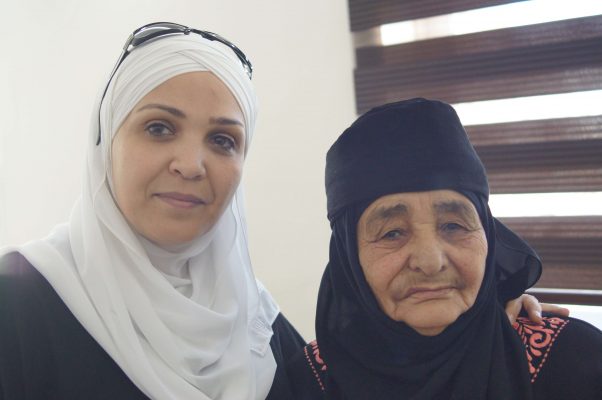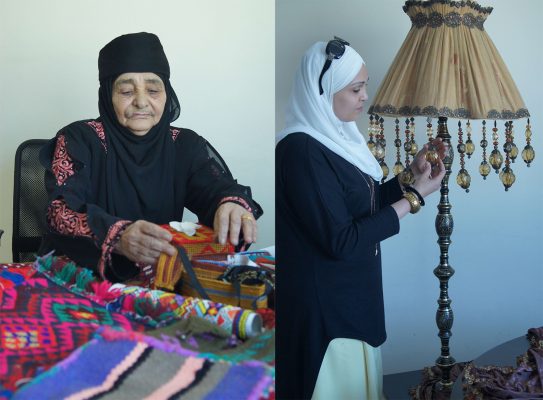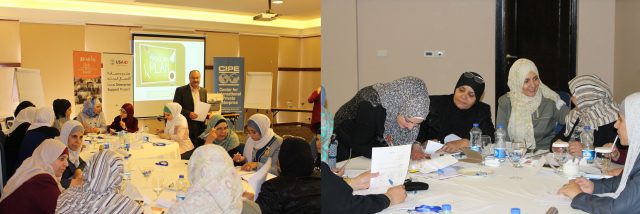The Women Access to Entrepreneurship Development and Training Society (WAEDAT) provides comprehensive business training, mentoring, networking, consultation and access to finance to help women with registered and unregistered home-based micro enterprises succeed.
CIPE’s work described in this story was made possible by a grant from USAID LENS to support and upgrade the services of business associations in Jordan to better serve their micro and small business members.

Engagement in economic life is severely limited for many women in Jordan. This is due to a number of factors including cultural restrictions, family commitments, and transportation costs. Despite these challenges, Jordanian women are finding ways to create opportunity for themselves. Starting businesses in their homes is one of the ways talented and energetic female entrepreneurs are gaining a foothold in the male-dominated economy.
One such entrepreneur is Liza Abu Thyab. Liza lives in Karak in west central Jordan. She is a school teacher by day but during her spare time she pursues her passion for making decorative items for the home. Liza designs and produces lamp shades, table cloths, mirrors and table top boxes. She started her business Liza Vision in 2004 and has been gradually growing her customer base since. “I work as a teacher and dedicate my spare time to growing my business. Being a full-time businesswoman is my long-term dream.” Liza feels fortunate to have a strong support network for her business. Liza’s husband and three children help her prepare for exhibitions and bazaars. For help developing the business skills to run her enterprise, Liza joined the Women Access to Entrepreneurship Development and Training Society (WAEDAT).
WAEDAT is a non-profit, business association with a mission to provide women with the business skills, vocational proficiency, and confidence to contribute economically to their family and community. Services focus on developing the skills to start and run a business, such as creating business plans, accessing finance, production, quality control, marketing, and financial and human resource management. Founded in 2004, the association provides support services to more than 1500 Jordanian women a year.

Hadwa Hweitat is another businesswoman who has leveraged her WAEDAT membership to develop her business and find new opportunities. Hadwa produces scarves, accessories and handmade carpets. She lives in the village Mregha, near the city of Maan in southern Jordan. She started her home-based business Om Bakhit Products in 2004 and, despite being unable to read or write, she has gradually expanded by finding new customers all over the country. Today she produces Schmagh headscarves for the Jordanian armed forces.
WAEDAT’s General Manager Nabeel Abu Shriha says Liza and Hadwa are just two examples of the inspiring woman who join WAEDAT to develop their skills and meet others to share experiences and contacts. “While the business skills we impart are important, just as important is the life skills training we provide. Women leave our trainings with both the competence and confidence to pursue their business plans and succeed.”
The Center for International Private Enterprise (CIPE) has been helping WAEDAT build its organization so that it can grow its network of female micro-entrepreneurs. WAEDAT has historically been a grant-based organization. Through customized strategic planning efforts, CIPE helped WAEDAT reconfigure itself as a self-sustainable member-based business association with diverse revenue streams. In addition to membership fees, CIPE recently helped WAEDAT attract a major sponsorship from the European Bank for Reconstruction and Development to implement its new and enhanced member services. With CIPE’s support, WAEDAT has been developing its membership services and expanding member outreach. Nabeel Abu Shriha says that by being a member-based organization, WAEDAT can focus on its core mission of helping women start and grow businesses. CIPE’s work is made possible by a grant from the Local Enterprise Support Project funded by USAID/Jordan and implemented by FHI 360.

By creating a community of women who can inspire and support one another, WAEDAT is an important part of Jordan’s entrepreneurship ecosystem for women-owned micro-enterprises. Hadwa Hweitat contributes to her community through two non-profit associations she started to help improve the life of women in her village. She created a beauty salon and mini market where local women can provide services and sell their goods. She also raised money to install a solar system in her village for energy and to heat water. Hadwa says that women neighbors tell her: “You have brought life to our village.” The men in the village are now following her example and starting associations of their own.
Liza Abu Thyab is WAEDAT’s South Area Coordinator, facilitating the participation of home-based businesswomen in trainings and workshops. In addition to playing a leadership role in her community as a teacher and WAEDAT coordinator, Liza has big plans for her own business. As she continues to work on new designs and look for marketing opportunities, she is building the skills and collateral to start her own factory. “I want to build a factory so that I can be the first lamp shade manufacturer in Jordan.”
For more information on USAID LENS visit: jordanlens.org
To learn about other success stories visit: jordanlens.org/success-stories
Published Date: May 01, 2018
